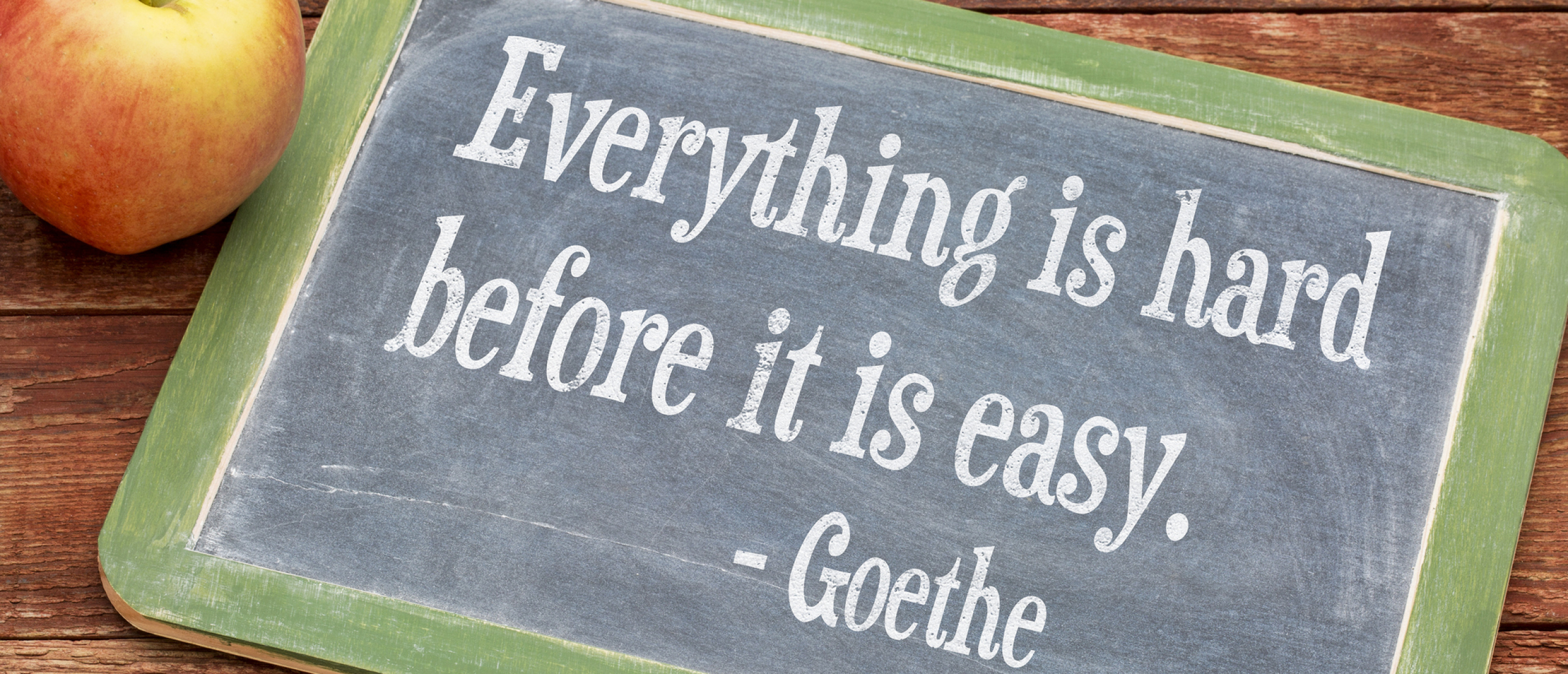Your husband or wife has found his/her dream job and you are super excited for him/her to move to the other side of the world for it. For you have promised one another eternal fidelity until death do you part. And moving along should not cause that bump in the road, right? Emigrating for the sake of your partner can be a real test. Wanting to understand each other is therefore an essential basis for taking this problem by the horns. You could live together (almost) anywhere, if you are only willing to surrender...
Trailing Spouse Syndrome
Unfortunately, you can not entirely prevent the occasional bump in the road with anything. Life in it self will always be a challenge and a constant dynamic flow of change. After all, you never know how to handle a situation until you're about to actually cross that bridge. So do expats. Especially expat partners may suffer from a specific problem which is known as 'Trailing Spouse Syndrome'. It is a collective term for characteristic symptoms that partners of expats deal with during the first period in the new country. Symptoms may include:
- homesickness for the country of origin.
- loss of self-worth because the partner has had to give up a lot.
- the feeling of always having to be (financially) dependent on the partner.
- being in isolation because the new start can make you feel alone.
- feeling of regret for taking that step abroad.
- loss of identity.
- expectations are (way) different from reality.
- lack of direction; literally! You simply don't know what to do with your (new) life.
My experience: how did I cope with my symptoms?
In the beginning, right after we had arrived in Frankfurt I felt kind of 'numb'. Everything went automatically and acted like it was the most normal thing to start a life abroad. Everything was focused on making my daughter and husband as comfortable as possible. That maternal instinct you experience right after birth, I recognised again. I (unconsciously) switched off my needs and interests completely, and threw myself into taking care of administrative and organisational matters. I didn't see myself as an expat yet to be honest, because I didn't really know what that meant either. I was not the one who wanted to move here, but the one who wanted to be next to her husband to support him. After a few weeks, when all the boxes were unpacked and I felt that the most important things were taken care of, I started to get bored to death. I normally never get bored because by nature I always had something to do. Now that natural urge was somewhat complicated because I didn't speak the language. The language barrier, along with the unfriendly and businesslike approach of the local Germans, forced me to be housebound. Our initially spacious apartment we moved into became smaller and smaller for my perception until the walls seemed to be closing in on me. Since I felt trapped in that house, I decided to pick up the application flow again. I proceed writing letters to all the international schools in the hope to proceed my job as a teacher. But only rejections followed. At one point I was close to despair and started applying as a chambermaid in hotels. I took for granted that I felt so deeply sunk when it came to develop myself career wise.
It was more important for me to have something to do than to sit at home alone with my thoughts....which steered me often into the direction of going back to the Netherlands. Back to the way it was, to my familiar world. Didn't like this big business city where everything is about money. Called the financial heart of Europe for a reason. The many parks that sometimes blur out the banking landscape with its huge skyscrapers did not always help. These three things helped me overcome my trailing spouse syndrome:
1. Running
Before I expand on this, just a little side note upfront. I don't mention this to give the impression that you should just tie your laces, run a block, and then your problems will disappear. For me, running has contributed to my healing process. Accidentally, because I was in a state of searching for a new 'outlet'. So for you, this may be very different.
Running was something new to me. I did not like the activity itself, but miraculously it did something to my mood when I finished. It got me really out of my rut. It gave me a new physical experience and it made me present to both mind and body. That is what I was longing for; to be present in the here and now. I experienced the positive effects after a cardiovascular activity on both mind and body and sparked even creativity within me. Besides that it showed me new parts of my neighbourhood, it also made me appreciate my new environment even more.
Because if running felt impossible, and I was actually doing it, what else could I do?
Running for me was back then and still is now meditative. It gives me a sense of hope and makes me feel like new possibilities are available to me. I started with a small lap around the house and that lap became a kilometer. From one kilometer to 2 and then 3 and so the ambition to run more often and further grew. Running became my antidepressant. If you then had told me that 4 years later I would be running my first marathon in Frankfurt, I would probably have laughed hard at you. And even harder if you added that I would run my second one 3 years after that. This major accomplishment was proof that I was capabel of so much more than I used to tell to myself. Because if running felt impossible, and I was actually doing it, what else could I do?
2. Introspection
When you go on a journey to yourself you encounter a lot. From deep valleys to the highest mountains. During my journey, I encountered markers of insecurity, fear, procrastination, inexplicable anger, and homesickness. The homesickness was so severe and painful that I really had no energy for anything else. My days were filled with taking care of my family and not for myself. Not being able to pour from an empty cup was something I did not want to believe in. Life must keep flowing and if there's nothing left pouting, I would pretend otherwise. There was no energy left for myself and that caused a downward spiral resulting in a woman who didn't really enjoyed life. First my thyroid gave signals that I had to take better care of myself and later on the many injuries I got during running. Despite my reasonably healthy lifestyle, I gained weight and suffered from mood swings. Fortunately, this improved with the guidance of various doctors. Yet there was still that dark cloud that would not go away.
I got to a point where I started blaming my husband for everything. Because of him I ended up in a country where I didn't want to stay for a second longer. Blaming him for all my problems I experienced at the time, felt like an outlet because I had nowhere else to lose that burden I was carrying. I became blind for everybody else's needs and attention and only saw my miserabel self everywhere. The only way to end this was to go back to the Netherlands and leave everyone behind. Although I did not view it from that point, for someone else it certainly looked like the most selfish thing to do. That I was the bad guy. As me, causing the 'problem' I thought it would be easier to remove the obstacle which would be me.
Was this really what I wanted to teach my children? Just walk away when something is not to your satisfaction?
Fortunately, there was my sixth mother sense that pulled me back to the ground. Walking away from a situation when things weren't going well for a while was the easiest thing I could do. But if everything was that easy in this life, the world would look much more carefree so that point of view did not make sense either. Going back to The Netherlands and leaving things as they were didn't quite rhyme with real life. Was this really what I wanted to teach my children? Just walk away when something is not to your satisfaction? No, my maternal instinct told differently. Thanks to meditation, inner reflection and praying I came to the conclusion that I had to surrender. At least to this phase of my life. Learn to work with life instead of fighting it. I enlisted the help of a psychotherapist who gave me valuable tools to help myself. What do I want? Where do I stand? Where do I want to go and how do I get rid of that part of myself that causes melodrama and drown myself in it?
3. Surrender
Life is completely unpredictable and uncontrollable. Because what would change if we returned? Yes, we would be with family more often and everything would be back to the way it was in the comfort zone we left behind. However, there we might also face setbacks and things would not always work out the way we plan. So the best thing I could do is to hold on and take comfort in knowing that there was never control anyway and there never will be. No matter how hard I try. I delved more into the concept of surrender and actually did a course to put it into practice.
Wanting to control a lot in hopes of influencing the outcome made me anxious and worried. I stayed in a vicious cycle as I thought about what actions I could take to get what I wanted. As we all know, twisting and manipulating a situation rarely gets us what we want, and actually makes us feel worse. Every time I tried my best to bend a circumstance to my will, I faced a roadblock, a dead end.
When I finally let go of the need to control the situations in my life, situations began to unfold in the very best way.
All those difficult moments brought me not only closer to God, but more importantly to the importance of conscious surrender. The practice of surrender involves letting go of the need for control, doing what is needed in the moment, and allowing situations to unfold in the time and manner that are needed. It is not easy for us humans to let go of the reins, to trust, to allow, and to breathe through the uncomfortable moments of uncertainty. But when we do, when we allow and trust and hold on to a steady stream of faith, we create the space for the most miraculous outcomes. In doing so, we give our hearts and minds a much-needed break and let the energy of external forces do the work for us.
When I finally let go of the need to control the situations in my life, situations began to unfold in the very best way. Outcomes I could not have even imagined were presented to me, and I did not have to manipulate or force them to achieve them.
Gentle reminder for you
With whatever you deal with in life and whatever situation you find yourself in, -suffering from trailing spouse syndrome or not-, just let go of your tight grip on control and open your mind and heart to the possibilities and outcomes that can be created if we allow the necessary space for it. During the surrender course I learned to let go of the reins and to trust, allow, and breathe through the uncomfortable moments of uncertainty. Even through processing my father's death last September, "surrender" has brought me a lot of comfort. No grief process or problem is the same, but I do think that for everyone it begins with surrendering to reality. Once we are willing to let go of suppressing and start embracing reality, life unfolds in our favor.
My social contacts grew, I found a job as a teacher -which at first seemed impossible here- and was even able to coach people with small and large problems. This would not have been possible if I kept kicking at life like a toddler because it didn't give me what I wanted. Sometimes life just needs time and space to fully unfold, and who are we to push life's timing? I hope this serves as a gentle reminder that you don't have to constantly seek and be everything others want you to be.
Although every rut I have ever been in has felt different and caused by different circumstances, there is always an affirmation I use to get myself out of it. I learned this one from my coaching training from Tony Robbins: "If you do what you've always done, you'll get what you've always gotten." This phrase always helps me to see the light and reminds me that I have the power to make new choices, try new things and see things from a new perspective. Even from a place I didn't initially want to be. And it always works.
Photo by Charlie Foster on Unsplash






